12 Reasons Why Ducks Are Better Than Chickens
- February 5, 2024
- 0 comment
I’ve spent countless hours with ducks and chickens, learning about their habits, needs, and unique personalities. Through this close interaction, I’ve come to appreciate the subtle yet significant differences between these birds. Over time, my affection has grown stronger for ducks, as their distinct characteristics and the joy they bring have shown me numerous benefits they have over chickens.
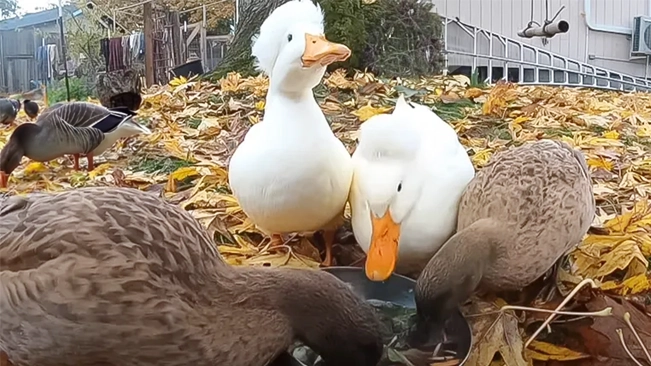
This preference emerged from thorough observation and a deep bond with these animals. In this article, I’ll share the insights and compelling reasons why I believe ducks are a superior choice for backyard poultry or farm settings.
Dispelling the Misconception of Messy Ducks
There’s a common myth that ducks are messier than chickens, but from what I’ve seen, this simply isn’t true. This idea usually comes from not understanding ducks’ needs or not giving them the right environment. Often, people try to raise ducks in setups meant for chickens, which just doesn’t work because ducks have different needs, especially their love for water.
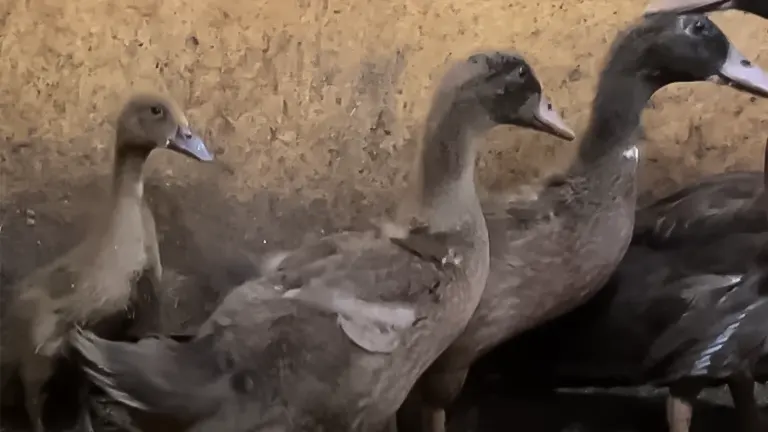
Ducks are part of the waterfowl family and naturally like to be in and around water, which can make their areas muddy. However, this doesn’t mean they’re dirty birds. Ducks are actually very clean; they constantly preen and keep their feathers in pristine condition. For example, white Pekin ducks can go from muddy to spotless in no time because they take good care of their feathers.
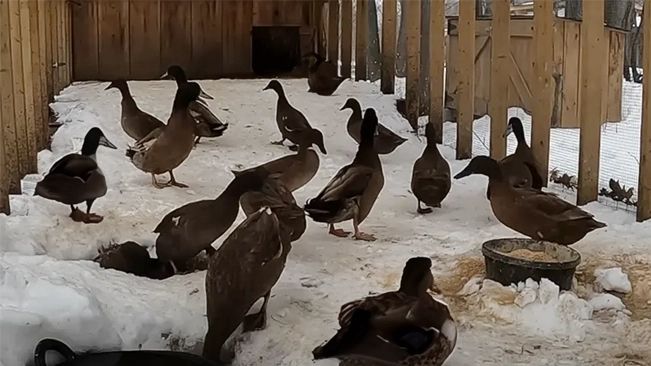
The key to keeping ducks clean is to provide them with a living space designed for their specific habits, especially one that handles their need for water without creating a mess. When ducks have a habitat that meets their needs, they maintain very clean habits. Understanding and accommodating the differences between ducks and chickens is crucial. When done right, the idea that ducks are messier than chickens is easily debunked.
Reasons Why Ducks Are Better Than Chickens
1. Water-loving Personalities
Ducks are natural water enthusiasts. Unlike chickens, who shy away from getting wet, ducks thrive in aquatic settings. Watching them in water is like seeing a live performance—each movement is graceful and intentional, filled with dives and splashes that reflect pure joy.
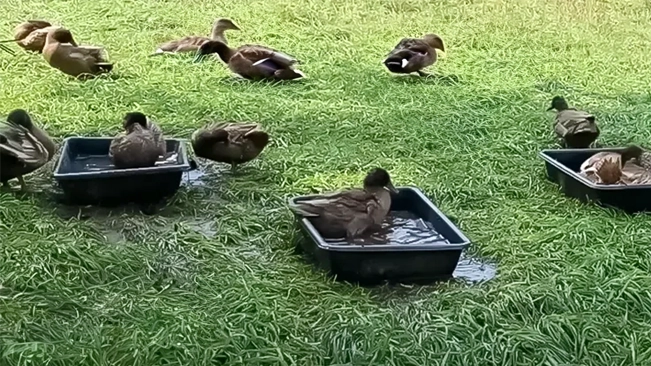
For ducks, water is more than just fun; it’s essential for their health and hygiene. They use water to groom meticulously, keeping their feathers in excellent condition. This deep connection to water not only highlights their unique traits but also enhances their appeal, making any pond or makeshift pool their personal stage for delightful antics.
2. Pest Control Experts
Ducks excel at natural pest control, effectively reducing unwanted bug populations in gardens. Unlike chickens, which tend to be selective foragers, ducks eagerly hunt down slugs, snails, and various insects—many of which chickens ignore.
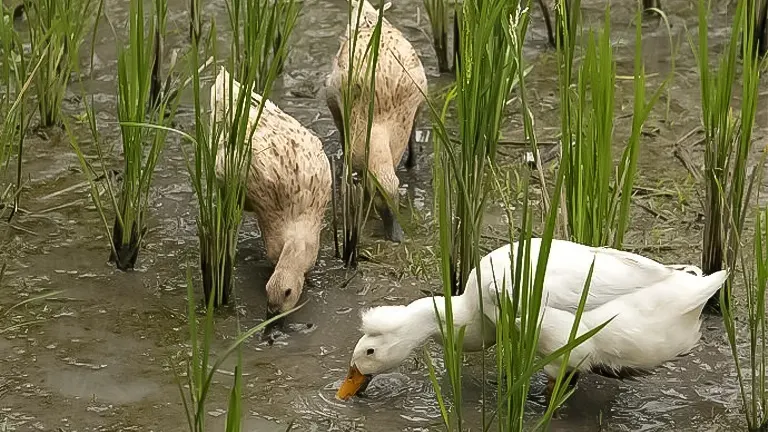
This makes ducks particularly valuable for gardeners, as their appetite for common pests minimizes the need for chemical pesticides, providing an environmentally friendly way to keep gardens healthy. From my own experience, ducks have transformed my garden by controlling the slug population, helping protect my vegetables more effectively than I could have anticipated.
3. Hardiness and Health
Ducks stand out for their resilience and robust health compared to other poultry. They thrive even in challenging conditions, such as cold and damp climates where chickens might falter. This toughness comes from their waterproof feathers and special physiological traits, helping them resist diseases like Marek’s disease and coccidiosis, which often affect chickens.
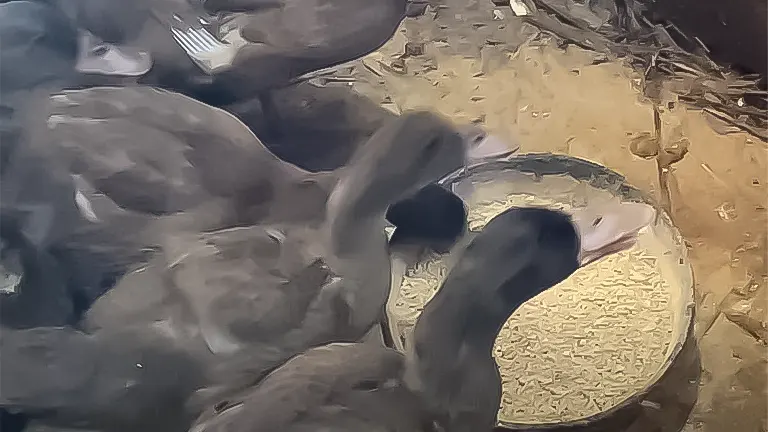
In my own experience, ducks have proven to be remarkably disease-resistant, consistently showing fewer health issues than their chicken counterparts. This resilience not only makes them easier to care for but also highlights their adaptability and durability in diverse environments.
4. Egg Production
Duck eggs are truly a hidden gem in the poultry world. They are larger and more nutrient-dense than chicken eggs, rich in Omega-3 fatty acids, which are essential for a healthy diet. This makes them not just a culinary delight but also a superior nutritional choice.
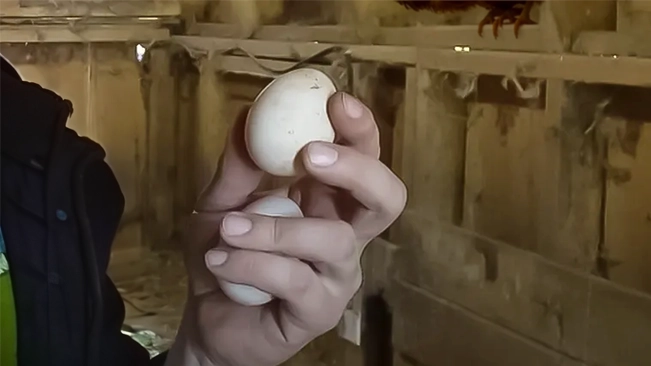
What’s more, ducks maintain consistent egg production throughout the year, unaffected by the shorter daylight hours that often cause chickens to reduce their laying. This reliability means that my ducks continue to provide a steady stream of eggs, ensuring that I have a constant supply, even during periods when chicken eggs might be scarce. This consistent productivity is just one of the many reasons ducks are an exceptional choice for backyard poultry.
5. Less Noise
Ducks are notably quieter than chickens, particularly roosters. The gentle quacking of a duck lacks the sharp, disruptive crow of a rooster, making them more suitable for urban or suburban settings where noise might be a concern. Neighbors are far less likely to be disturbed by the soft, conversational quacks of ducks.

This makes ducks an excellent choice for those who want to maintain a peaceful backyard environment. Their quieter demeanor allows for a harmonious presence, making them ideal for keeping close to home without worrying about disturbing the peace.
6. Foraging Efficiency
Ducks are outstanding foragers, adept at scouring large areas for food, which reduces their reliance on supplemental feeding. This natural behavior not only cuts down on feeding costs but also ensures they consume a diverse and nutritious diet. The benefits of their foraging prowess are reflected in the quality of their eggs, which are often richer and more flavorful compared to those of chickens that don’t forage as freely.
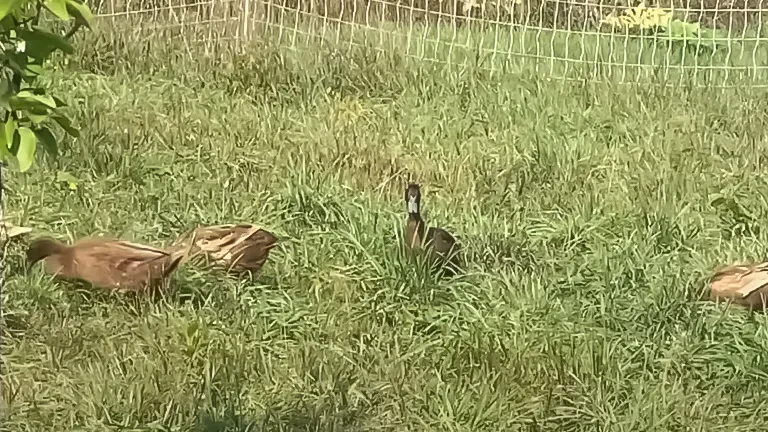
Moreover, ducks contribute to pest control as they snack on harmful insects and larvae, which benefits the garden’s health. This ecological service enhances the environment they live in and boosts the nutritional value of the produce and eggs they generate, making ducks not just efficient foragers but also beneficial garden partners.
7. Low Maintenance
Ducks stand out as particularly low-maintenance pets compared to other poultry, thanks to their resilience and self-sufficiency. Their robust health significantly reduces the need for frequent care, saving both time and resources. Ducks naturally bathe often, which not only keeps them clean but also greatly reduces their risk of parasitic infections, a common issue in poultry.
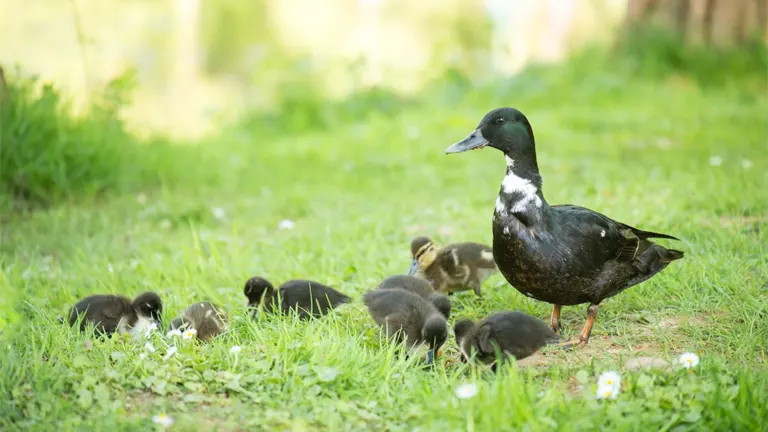
This instinct for cleanliness, coupled with their hardiness, means that ducks require less veterinary intervention and are ideal for those seeking a more hands-off approach to poultry keeping. They are an excellent choice for anyone looking for resilient and low-care birds.
8. Soil and Garden Friendly
Ducks are exceptionally gentle on garden environments compared to chickens. While chickens often disrupt plant roots and garden beds with their scratching, ducks take a milder approach. They forage by using their bills to sift through the soil, searching for pests without harming the plants or soil structure.
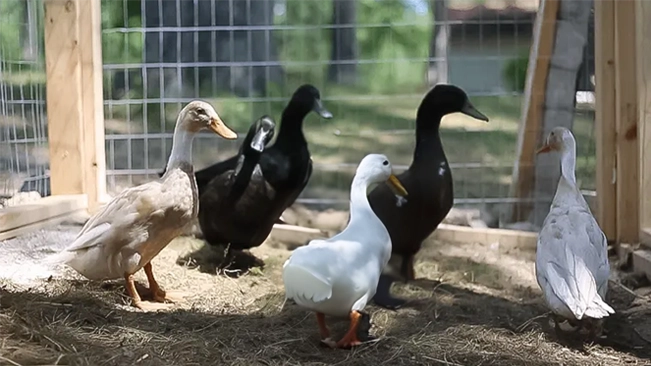
This method allows ducks to effectively control garden pests while preserving the integrity of your garden beds. Their less invasive foraging style makes ducks excellent companions for gardeners seeking to maintain healthy, undisturbed soil and robust plant growth.
9. Longevity
Ducks are known for their impressive longevity, often surpassing chickens in lifespan, which can enhance their appeal as a long-term investment for poultry enthusiasts. Typically, ducks provide companionship and productivity, including consistent egg laying and effective pest control, for about 7 to 8 years.
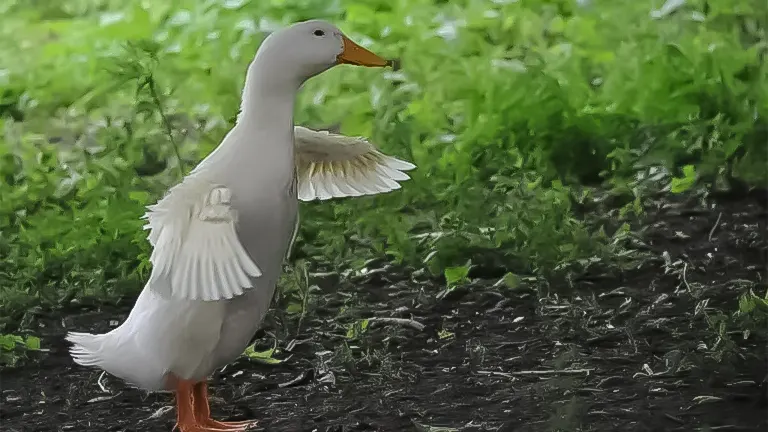
This extended lifespan means that ducks can contribute to your household or farm for a longer period, offering more years of egg production and natural garden maintenance. The prolonged productivity of ducks makes them a valuable asset, providing a greater return on investment over time compared to shorter-lived poultry species.
10. Broodiness and Mothering
Ducks excel in broodiness and display remarkable mothering capabilities. They are dedicated to hatching their eggs and are highly reliable in nurturing their ducklings, often more so than chickens. Their strong maternal instincts not only enhance the success rate of ducklings reaching maturity but also contribute significantly to the sustainability and growth of the flock.
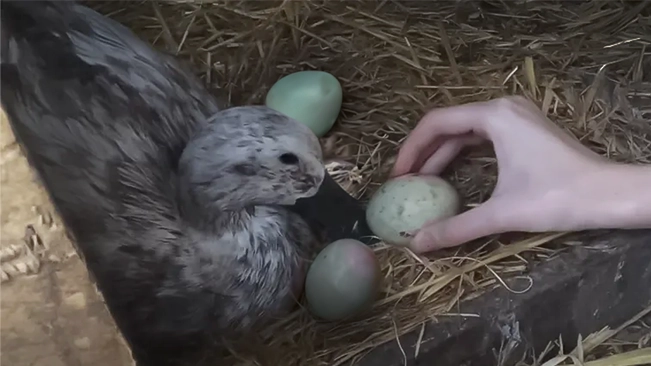
The attentive and protective nature of duck mothers allows for a more natural rearing process, reducing the reliance on artificial incubation and raising techniques. This natural approach to growth ensures a robust and healthy flock, showcasing the advantages of ducks in poultry management.
11. Personality and Temperament
Ducks are often cherished for their sociable nature and unique personalities, making them particularly endearing to those who raise them. They exhibit a level of curiosity and friendliness that is not always evident in chickens.
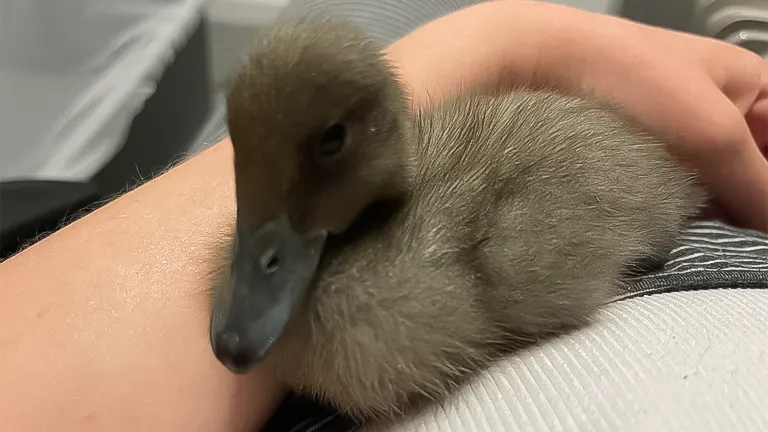
Ducks typically show a willingness to interact with humans and display less aggression and pecking behavior than chickens, contributing to a more peaceful and enjoyable backyard poultry experience. Their engaging personalities and calm demeanor not only make them delightful companions but also simplify their management and integration into a diverse homestead.
12. Sustainability Aspect
Raising ducks complements sustainable living practices exceptionally well. Their waste provides a high-nutrient fertilizer, richer than that of chickens, making it an excellent resource for enriching garden soil and boosting plant growth naturally.
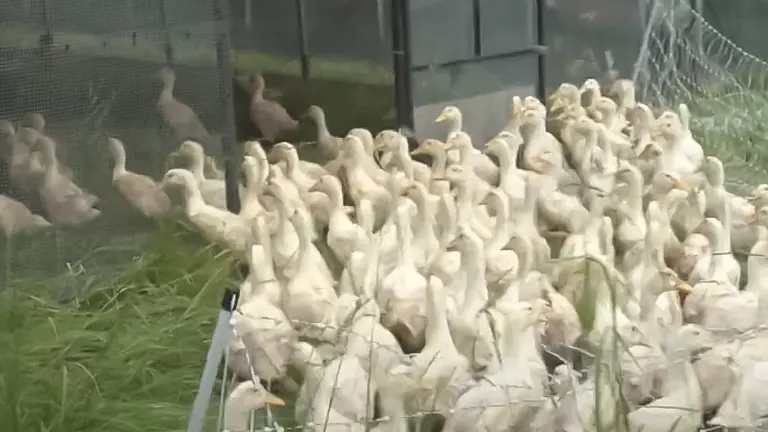
This reduces the need for synthetic fertilizers. Additionally, ducks’ affinity for water can be harnessed in ways that benefit permaculture systems, such as their use in maintaining the health of aquatic plants and managing water bodies to prevent algae overgrowth. Their overall impact on an ecosystem demonstrates how they can support a more sustainable, closed-loop agricultural practice.
Related Articles:
- Best Bedding For Chickens
- Best Safe Chicken Coop Heater
- 8×8 Chicken Coop Plans
- Turning a Shed Into a Chicken Coop
- How to Make a Chicken Coop Out of Pallets
- Best Sand for Chicken Coop
- How To Insulate a Chicken Coop
- How To Heat a Chicken Coop
- How To Keep Water from Freezing in Chicken Coop
- How to Build a Chicken Coop
- How To Build Chicken Nesting Boxes
Final Conclusion
Though chickens hold a special place in many hearts with their own distinct advantages, my experience in poultry keeping has drawn me closer to the unique virtues of ducks. Their remarkable resilience, minimal environmental impact, and overall joyfulness make them an invaluable asset to any homestead. Whether it’s their effective pest control, contribution to sustainable gardening, or the simple pleasure of watching them frolic in water, ducks offer a delightful alternative that might just be the perfect addition you’ve been seeking for your backyard.
FAQs
- Are ducks really more water-efficient than chickens?
Yes, ducks are inherently more attracted to water, using it for both bathing and drinking. Their love for water plays a crucial role in their cleanliness and pest control habits. Unlike chickens, ducks use water to groom themselves, which helps them stay clean and reduces the likelihood of parasite infestations. - Can ducks actually help control pests better than chickens?
Absolutely. Ducks are known for their efficiency in controlling pests, especially slugs, snails, and various insects, which chickens may overlook. Their foraging behavior is beneficial for gardens as they reduce pest populations without the need for chemical interventions. - How do ducks fare in colder and wetter climates compared to chickens?
Ducks are remarkably hardy in various weather conditions, including cold and wet climates where chickens might struggle. Their resilience against common poultry diseases and their ability to thrive in less than ideal weather conditions make them a robust choice for backyard poultry. - Are duck eggs more nutritious than chicken eggs?
Yes, duck eggs are larger and contain more nutrients, including higher levels of Omega-3 fatty acids, vitamins, and minerals. Their rich nutritional profile makes them a valuable addition to the diet. - Do ducks make less noise than chickens?
While ducks do make noise, their sounds are generally considered less disruptive than the crowing of a rooster. This makes ducks a more neighbor-friendly option for those living in closer quarters. - How do ducks contribute to a more efficient foraging system?
Ducks cover a wide area in their search for food, significantly reducing the need for supplementary feed. Their natural foraging habits contribute to a healthier diet, reflected in the quality of their eggs and the reduced need for pest control in gardens. - Are ducks really easier to maintain than chickens?
Yes, due to their hardy nature and self-cleaning habits, ducks require less daily maintenance. Their frequent bathing helps keep them free from parasites, making them a low-maintenance option for poultry enthusiasts. - How do ducks benefit the soil and garden?
Ducks are gentle on the land, using their bills to forage for pests without disturbing the soil excessively or damaging plants. This behavior makes them especially beneficial for gardeners looking to maintain healthy, pest-free gardens. - Do ducks live longer than chickens?
On average, ducks have a longer lifespan than many chicken breeds, often living up to 7-8 years. This extended lifespan provides a longer return on investment through consistent egg production and pest control. - Are duck mothers better at brooding and raising their ducklings?
Duck mothers are known for their excellent broodiness and attentive care for their ducklings, often ensuring a higher success rate in hatching and raising their young compared to chickens. - What makes ducks more sociable and interactive than chickens?
Ducks often display curious and friendly behaviors, making them more sociable and interactive with humans. Many duck owners report that their ducks seek out human companionship and exhibit less aggression than chickens. - How do ducks contribute to sustainable agriculture?
Ducks play a significant role in sustainable agriculture through their waste, which is an excellent fertilizer for gardens. Additionally, their integration into permaculture systems helps promote a sustainable, closed-loop ecosystem, utilizing natural resources efficiently.
We’d love to hear from you! Share your stories or thoughts on why ducks might just edge out chickens. Whether you’re a seasoned duck enthusiast or just considering the switch, your insights are invaluable. Dive into the comments below and help others explore the wonderful world of poultry keeping through your experiences. Let’s chat about the unique joys and benefits of raising ducks!

Edward Smith
Forestry AuthorWoodworking is about more than crafting; it's a harmonious connection with nature, mastering tools, and preserving our environment. I'm here to share my knowledge and experiences with you, forging a future where we can embrace wood's beauty and utility while safeguarding our forests' health and diversity.








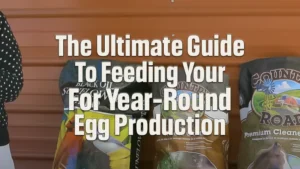




Leave your comment